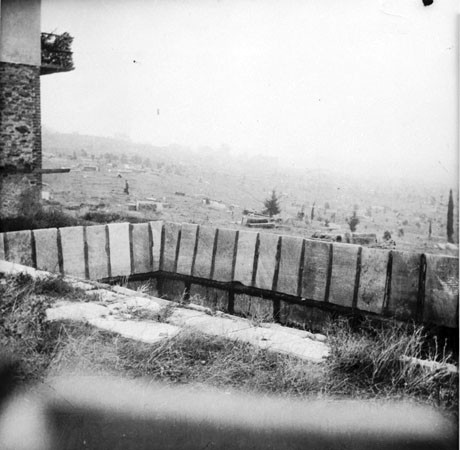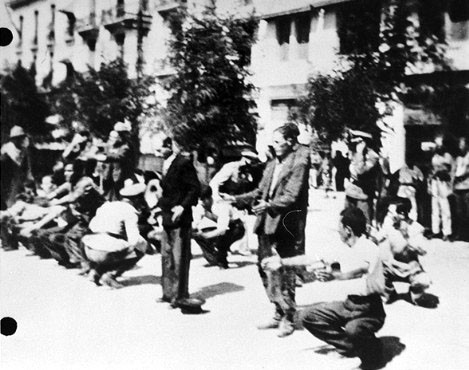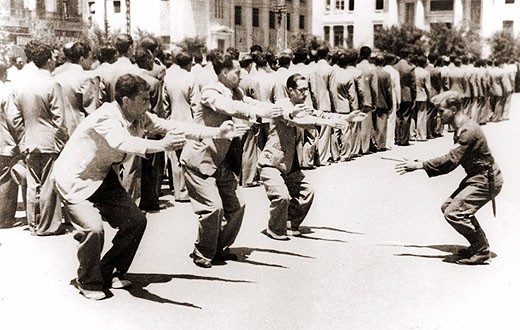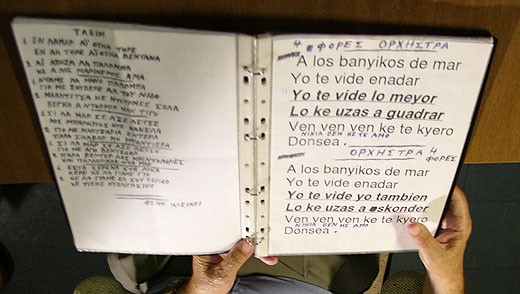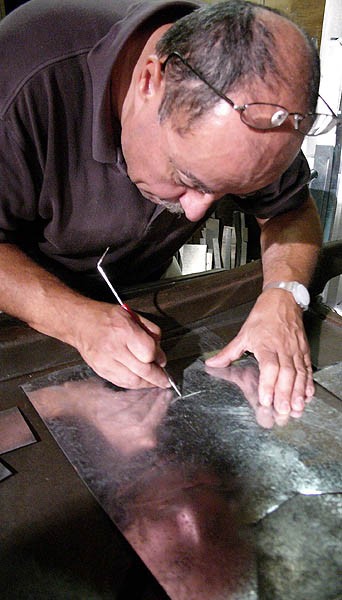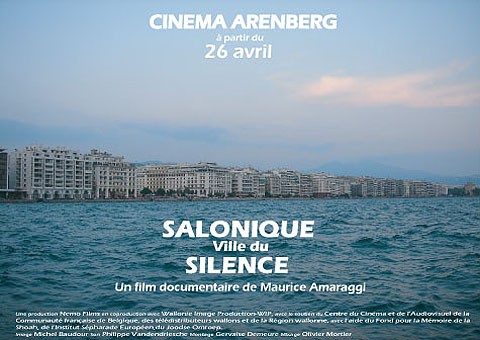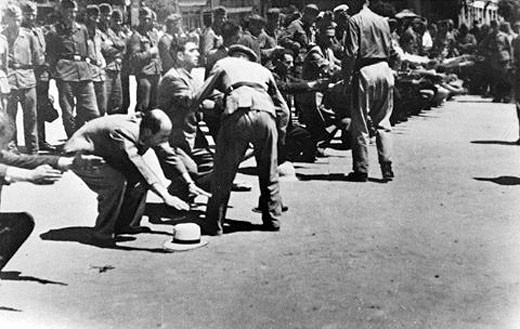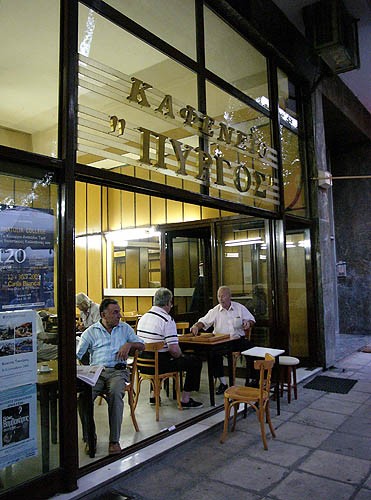The object of this documentary is to expose the disappearance, the obliteration, and the omission of a culture. The disappearance of an equilibrium during the Ottoman Empire and the willful erasing of the non conformist history of a city which did not adhere to the nationalistic ideology that turned the Balkans upside down and continues to do so. Who still remembers Salonika, a multicultural city with a Jewish majority, for half a century? The ancient Jerusalem of the Balkans has become a forgotten city, a “judenfrei” city. The film is organized around a stroll of the actual city, highlighted by word of some survivors of the extermination camps of 1943 and by the director, born in Salonika, who is putting together the bits of memories and nostalgia, to witness the exceptional past of the city and to refuse the elimination and the silence which are like a second death, more definitive than the first.
Synopsis
The object of this documentary is to expose the disappearance, the obliteration, and the omission of a culture. The disappearance of an equilibrium during the Ottoman Empire and the willful erasing of the non conformist history of a city which did not adhere to the nationalistic ideology that turned the Balkans upside down and continues to do so. Who still remembers Salonika, a multicultural city with a Jewish majority, for half a century? The ancient Jerusalem of the Balkans has become a forgotten city, a “judenfrei” city. The film is organized around a stroll of the actual city, highlighted by word of some survivors of the extermination...
Festivals
- Minneapolis Int'l Film Festival, USA, 2007
- Ashkelon Jewish Film Festival, Israel, 2007
- Seattle Jewish Film Festival, USA, 2007
- 8th Panorama of Independent Filmmakers, Thessaloniki, Greece, 2006
Press & Links:
“One film that definitely does have a sense of irony and uses it to devastating effect is “Salonika, City of Silence,” by Maurice Amaraggi. Salonika once had a huge Jewish community. Then the Nazis deported 50,000 Salonikan Jews to Auschwitz; fewer than a thousand survived and returned. As Amaraggi notes, in recent years the city government has used urban renewal as an excuse to efface Salonika’s rich multicultural past. The Jewish cemetery vanished, as did the city’s many minarets. The miniscule Jewish community that still remains struggles valiantly to stay alive, but one suspects it is only a matter of the passage of another generation or two before its members all move to Israel or assimilate.
Amaraggi tells this story in an elegant tapestry of free associations, moving from the Jewish tobacco workers who were a key part of the community in the 1920s to a rumination on the possibly Sephardic roots of the fictional Carmen, from the heimishe family dinners that have long since ceased to a school trip through the city’s large Jewish museum. The narration of the film is reminiscent of Chris Marker, an excellent role model indeed, and “Salonika, City of Silence” is a work worthy of that exalted precedent.”
Jewish Week, January 26, 2007.
For the entire article, click hereFestivals
- Minneapolis Int'l Film Festival, USA, 2007
- Ashkelon Jewish Film Festival, Israel, 2007
- Seattle Jewish Film Festival, USA, 2007
- 8th Panorama of Independent Filmmakers, Thessaloniki, Greece, 2006
- NY Sephardic Jewish Film Festival, USA, 2007
- Museum of the Memory of the Holocaust, Paris, France, 2006
- IMAJ, Brussels, 2006
- International Conference "Out of Reach", Halberstadt, Germany, 2006
- Anti Racist Festival, Thessaloniki, Greece, 2006
- Harif - Association of North African Jews, London, 2006
- The Latin American Film Festival, Belgium, 2006
- International Mediterranean Reportage Film Festival, Marseille, France, 2006
- Museum of Jewish Heritage, Thessalinki, Greece, 2006
- The Jewish Museum, Athens, Greece, 2006
Educational
- Binghamton University
- Princeton University
- Yad VaShem Visual Center
- Duke University
- Vanderbilt University
- Ohio State University
- Ithaca College
- Arizona State University
- University of Indiana
- Tufts University, USA
- Stanford University
- Yale University
- Harvard University
- Miami University
- Syracuse University
- Yeshiva University
- Maryland University
- Tufts University
- Greenberg Family Library, Canada
